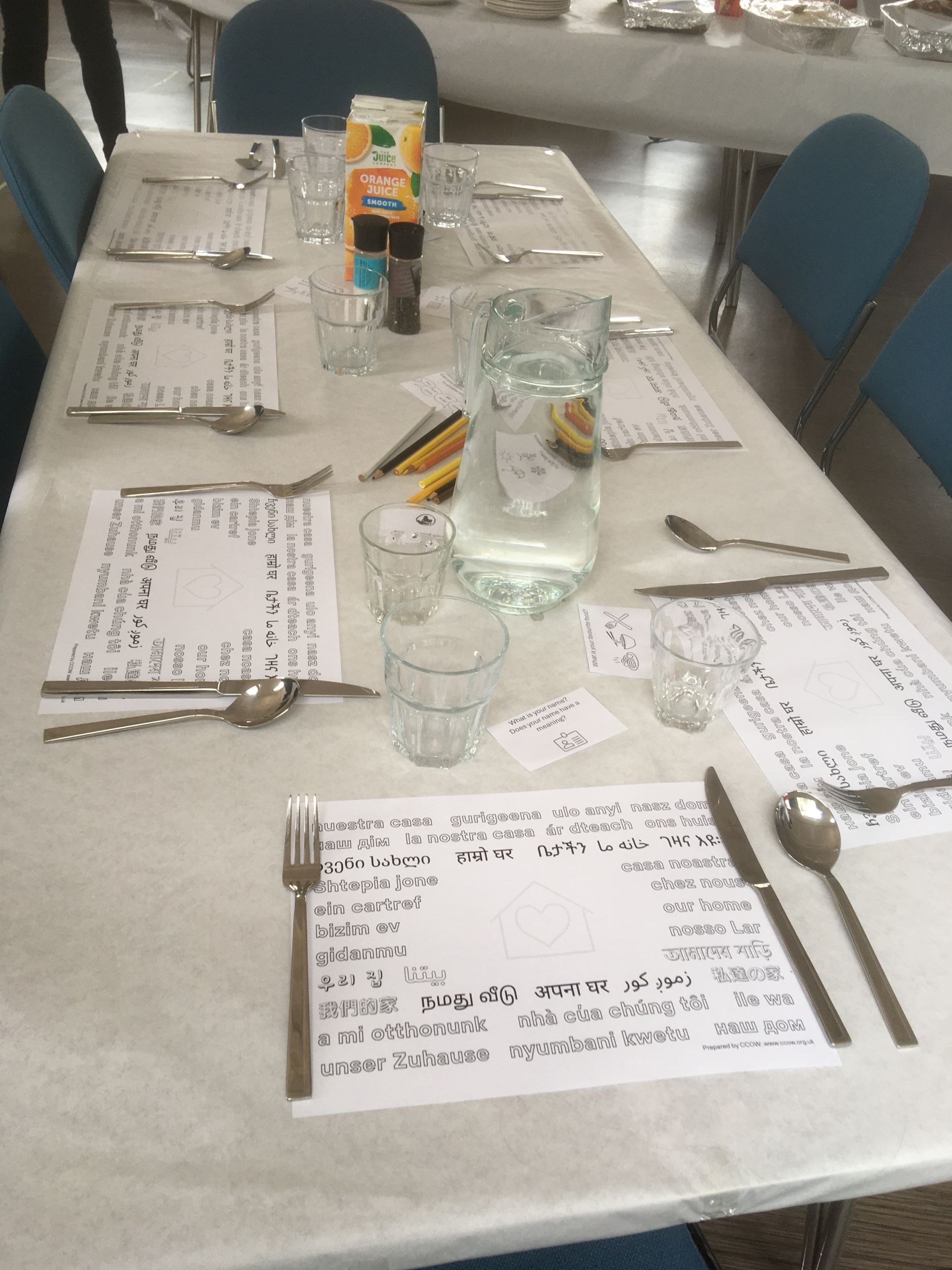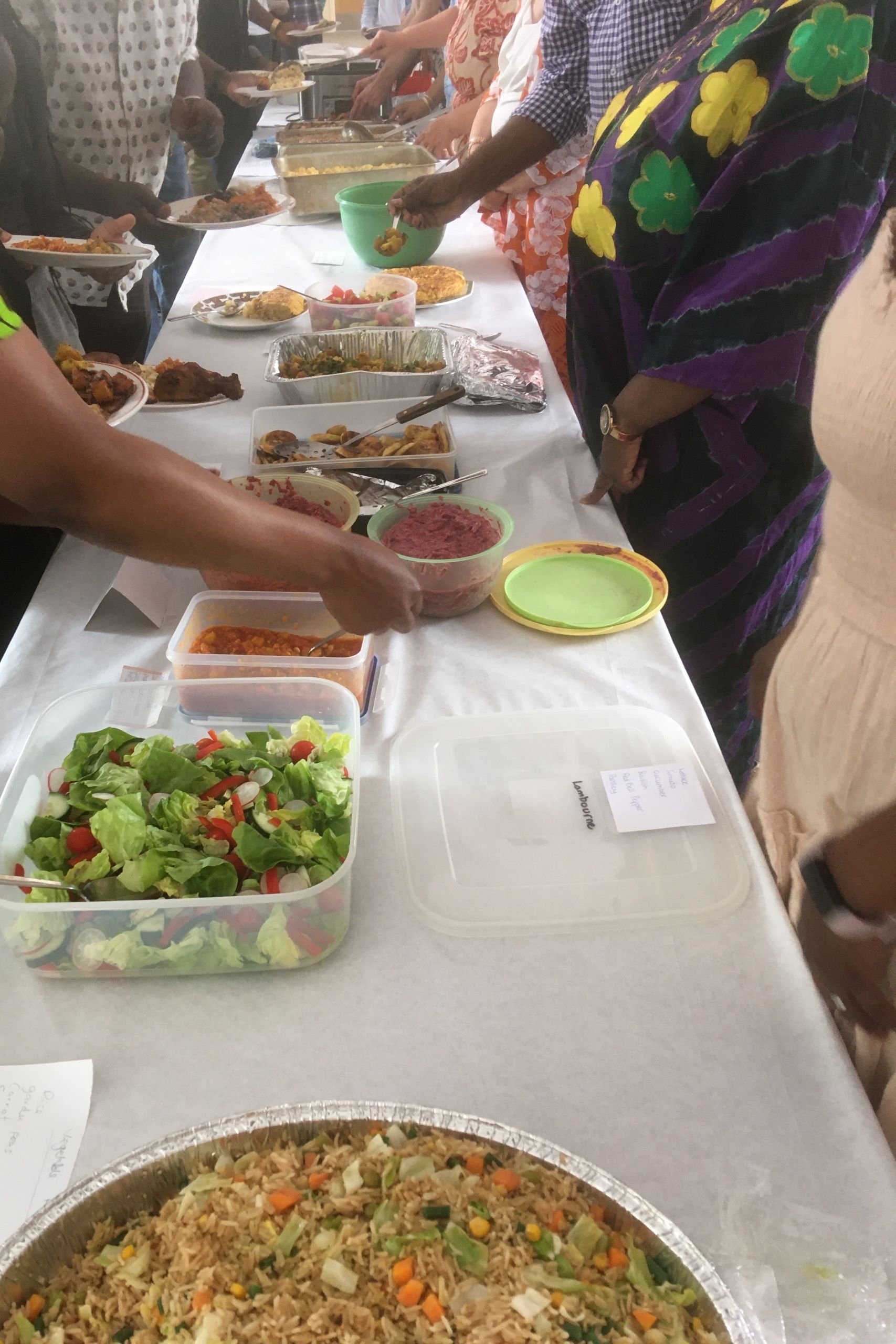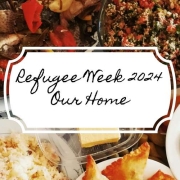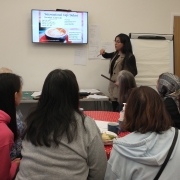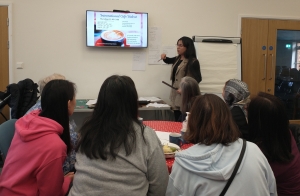It was a joy to hear back from a wide range of churches of different types and sizes from across the Thames Valley who celebrated Refugee Week with services and special events. We hope the examples below will inspire you to get involved in Refugee Week next year (15th – 21st June 2025) … and to be standing with refugees all year round!
Woodstock Methodist Church
had a refugee-themed service in which they used quotes from Malala’s stories of refugee children and stories of families newly arrived in Oxfordshire: Syrian families in Oxford (arriving via Community Sponsorship) and Witney (funded by West Oxfordshire) and the Palestinian refugee family whom Wesley Memorial Methodist Church sponsored in Oxford. They also shared the Warsaw Shire poem ‘Home’ and a short video about the work of Asylum Welcome. The church has designated Asylum Welcome as their project for the next year and will be fundraising for it.
At St Michaels and All Angels, Summertown
the sermon on the Sunday leading in to Refugee Week focused on refugees and our calling to be welcoming, supportive and challenging of the ‘hostile environment’ using the parable of the tiny mustard seed growing into a huge bush providing shelter and protection for all. On the Tuesday of Refugee Week there was a well attended concert raising money for Freedom from Torture; on Wednesday the usual weekly Ukraine Friendship Centre (approx. 60 attending); and on Friday ‘Songs of Sanctuary’, a celebration of Sanctuary Hosting with over 80 people including existing hosts, guests and local residents. Starling Singers, a global folk band, provided lively, engaging music, and volunteers from the church and Asylum Welcome provided a buffet meal for all. Finally on the Wednesday after Refugee Week, St Michael and All Angels were pleased to be one of several Oxford venues for the Yazidi women’s choir on a short visit to the UK organised by the Ammar Foundation.
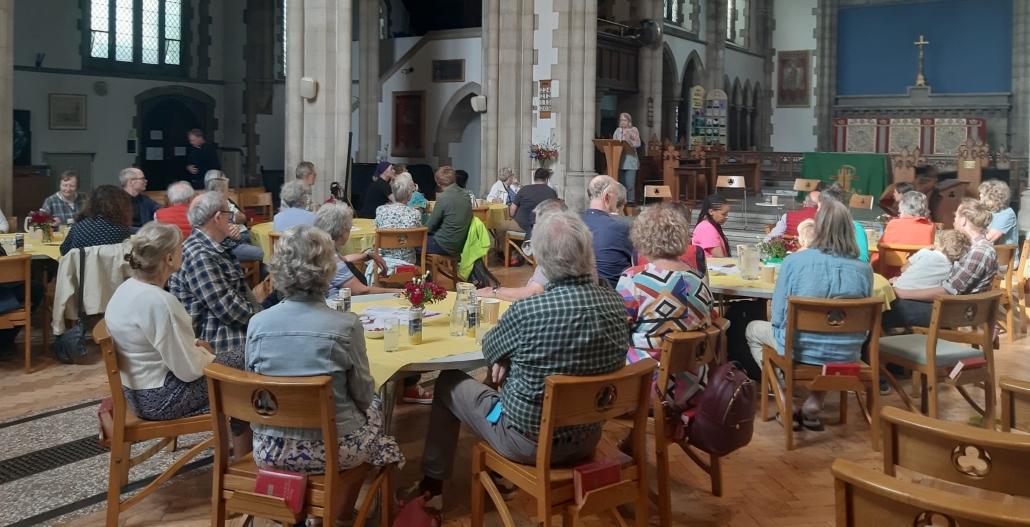
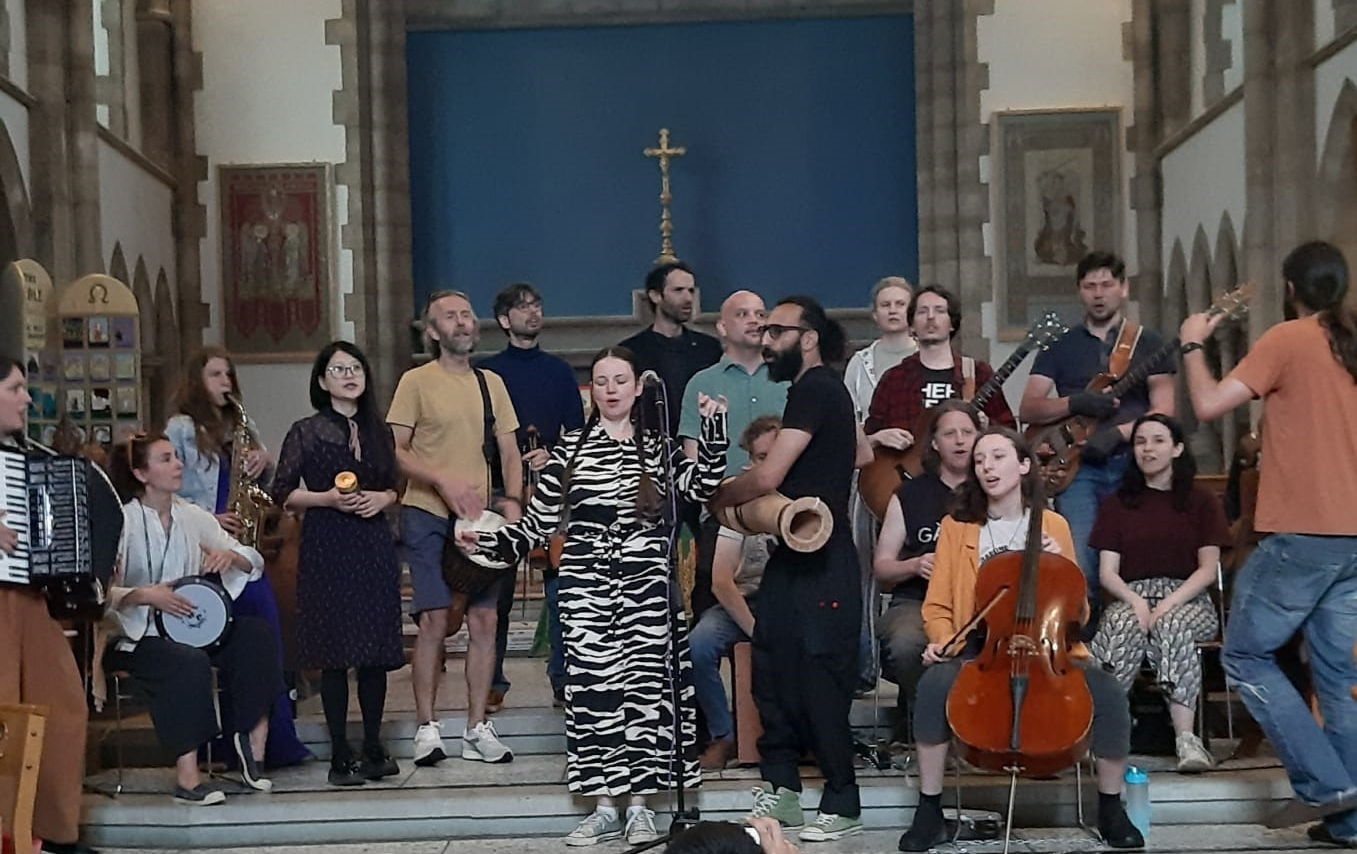
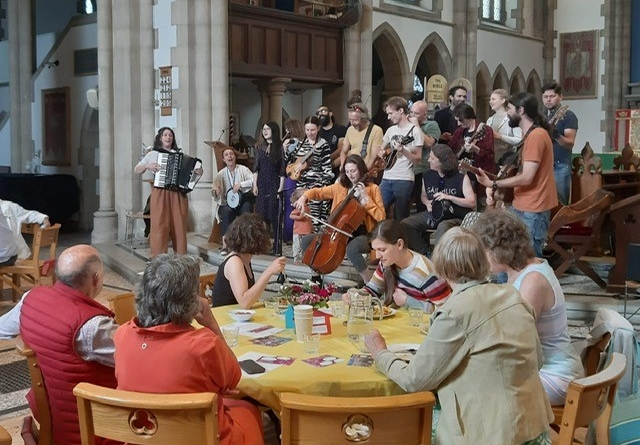
The church in the village of North Moreton
a village which has welcomed dozens of Ukrainian refugees, celebrated Refugee Week at its regular Sunday afternoon service. During the sermon slot, the congregation discussed facts and questions relating to refugees’ situation and prayed a Refugee Week prayer from CCOW.
Emmanuel Church, Oxford
marked Refugee Week in their Sunday morning service. They had a short slot focusing on what it is like to be a refugee, including an interview based on personal experience and some of the resources from Welcome Churches.
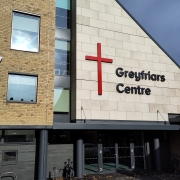
Greyfriars Reading shared
“At Greyfriars Church we celebrated refugee week with two events. Our regular language and cooking class, ‘Conversational Kitchen’ had a bring and share theme. Students brought in food from their own culture or cooked it on-site. They were also invited to bring family/friends. During our time together we shared music, games, clothes, stories and artwork from our countries. It was a great chance to talk about our home country and learn about what other people love about their own country. The second event was led by Resettlement CIC. There were live performances of song and dance from our Ukrainian and Iranian friends and a great chance to come together sharing food and building community.”
Thatcham Baptist Church
had a Refugee Sunday service on the theme of “Home” and an international bring and share lunch. Sarah shared: “We had a happy time, with a good mix of nationalities – Iran, El Salvador, Uganda, UK, South African. The highlight was a song with Thank You Lord as the chorus in all those languages! You can see the service on our YouTube / Facebook page. Thanks so much for the conversation starters which we put on all the tables. I think I’ll be using them again.”
Didcot Baptist Church
held an International Service followed by an international bring-and-share buffet lunch on Refugee Sunday. The church was decorated with flags from around the world and at the start of the service (attended by about 170) people were invited to come up and welcome everyone in their own language and stick a dot on the world map for places they regarded as “home” – about 15 different greetings were shared and echoed back by the congregation. Later there were presentations about the church’s international ministry – the English conversation class, international café and new Cantonese Bible study group – and these friends from Hong Kong sang “Give thanks with a grateful heart” in Cantonese and English. Prayers used included CCOW’s (modern) prayer for Refugee Week 2024, a prayer for transformation from the Northumbria community and a prayer for DBC’s international ministries. Around 80 people stayed after the service to enjoy fellowship together and sample dishes from many different countries. CCOW’s multilingual “Our Home” placemats and conversation starter cards provided a talking point and something to colour in.
